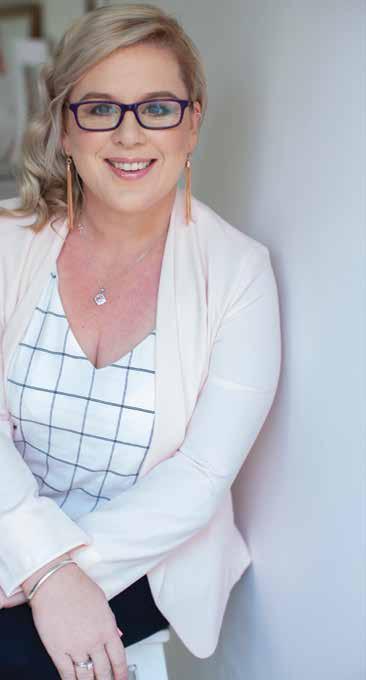
4 minute read
Living with dementia on your own terms
Words Ingrid Nelson
For most people, staying in the familiar surroundings of their own home for as long as their health and physical ability will allow is their first preference.
Advertisement
You may be lucky enough to have family or friends who can help you to live independently, however, there is also additional help available through reputable providers such as Home Care Assistance.
Providing older adults with quality care that enables them to live happier, healthier lives at home, the awardwinning provider specialises in thinking outside-thebox, particularly when it comes to caring for those with dementia.
Behind the enormous success of Home Care Assistance is owner Kendall Morton. Passionate about providing a balanced approach to ageing, centred on the evolving needs of older adults, the award-winning businesswoman is making a big difference to aged care on the Sunshine Coast.

“One of the biggest challenges for people caring for someone with dementia is that dementia is a very individual journey, so it affects people very differently,” says Kendall.
“The progression of this disease can also vary greatly from one person to another, so the impact it can have can be so different. Some of our clients have advanced dementia, but with a few strategies in place they still manage to live at home. Other people with dementia might experience aggressive behaviour or a tendency to wander, so it becomes a safety issue. The scope of effects on the individual is very large.”
Renowned for their innovative approach to aged care, Home Care Assistance provide a brain health program specifically for those with dementia to help stimulate the brain and reduce the effects of the disease. The program aims to improve quality of life by enhancing mental acuity as well as to delay onset and slow the progression of symptoms of cognitive decline.
Kendall Morton -- making a difference
“Cognitive therapeutics is for people with slight to medium cognitive decline to help keep the brain active and engaged,” says Kendall. “The brain is a bit like a muscle, if you don’t use it you lose it.”
Kendall says there is no one-size-fits-all when it comes to treating dementia. Hence, she and her team of skilled carers specialise in a highly creative approach to home care.
“We believe in thinking outside the box. That is a real strength of ours, discovering what the problem is and working out how we can mitigate or overcome it.” says Kendall.
“We had a client recently with very advanced dementia who refused to get into the shower, which is not uncommon. We sourced special flooring and placed a chair in the middle of the bathroom over the drain and extended the shower hose so she could have a shower. “It turned out it wasn’t having a shower she was fearful of but rather getting into the shower cubicle.”
Not only do Home Care Assistance support those living with dementia, most importantly, they also provide care and support for those caring for someone with the disease.
“We have a lot of resources and a lot of knowledge on how we can support caring,” says Kendall.
“Caring for someone with dementia is such a process and an emotional journey. A lot of the time you are forced into making decisions for someone who has been the decision maker for you, such as a parent. There is often a lot of guilt associated with making decisions, no matter what way you go because as individuals we are very good at feeling guilt, whether it’s warranted or not.”
Offering practical tips on how to take care of yourself, how to make sure you are getting a break and ensuring you have a support network in place is all part of the service.
“It’s a bit like when you are on a plane and they tell you to fit your mask before your child in an emergency. For any mother, that goes against everything that we feel. But if you are not looking after yourself and the strategies aren’t there for you to be able to cope, then it’s not going to be a possibility for that loved one of yours to stay at home or have the choices they want.”
Although families are often on the same page, Kendall says it’s not uncommon to have division about how a loved one should be cared for and that’s where Home Care Assistance can also help.
“There are often some really big decisions to be made and it’s natural that not everyone is going to be on the same page.
“Caring is not a democracy. If you are someone who is a full-time carer of someone with dementia and you are the one going to the appointments, your vote is worth a lot more because you are the one witnessing it. We want those people to know they are not alone. We are here to support the whole family.”
“With the right care in place, the majority of people can stay in their own home.”
“Very rarely does someone need round-the-clock care and if they do need more care, they can always top up their package with private services. It all comes down to what you value for your later years in life.
“Some people are absolutely against going to residential care and we will do whatever we can so they can stay at home and put the correct measures in place. The federal government even has a service where we can apply for a social visit with a volunteer. There are lots of things we can put in place to bridge that gap. Going into residential is not a natural progression.
“That’s not to say residential care is not a good option for some people. It’s knowing you have choices and options. If you want to stay at home, there are providers you can work with to make that happen.”










